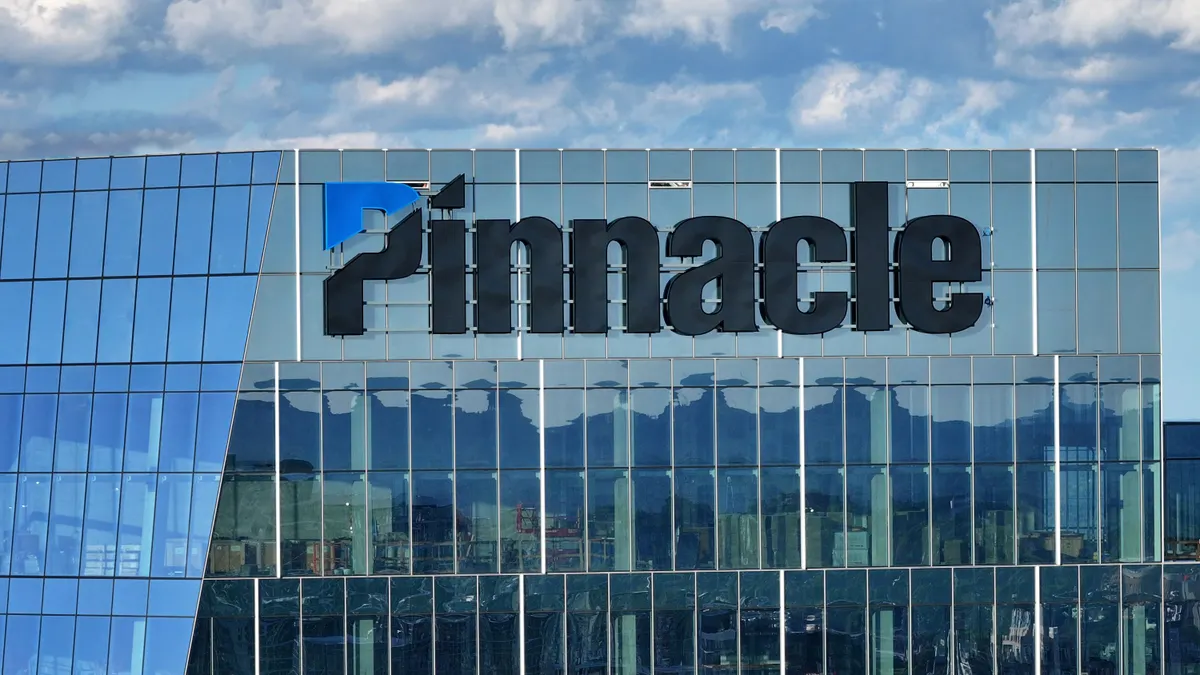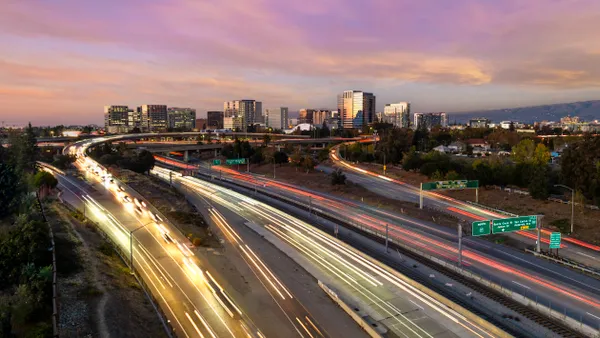Dive Brief:
-
JPMorgan Chase reported profit of $9.4 billion Tuesday, up 4% compared with last year, boosted by a 30% increase in trading revenue and a decrease in the bank's provision for credit losses.
-
The bank set aside $611 million in credit reserves during the quarter ending Sept. 30, a figure that had climbed to $10.4 billion in the previous quarter. The bank's total credit reserves, which it has been building significantly over the first half of 2020 amid the pandemic, remains at $34 billion.
- CEO Jamie Dimon, during a call Tuesday with analysts, continued his push for "nuanced, rational, thoughtful returns to the office."
Dive Insight:
While the ongoing coronavirus pandemic has put a dent in bank profits over the last several quarters, JPMorgan Chase kicked off earnings season with stronger-than-expected results.
"The Corporate & Investment Bank continues to be a big driver of Firm performance with Markets revenue up 30% and Global IB fees up 9%," Dimon said.
During a call with analysts, the bank's chief financial officer, Jennifer Piepszak, said the current economic uncertainty brought on by the pandemic hasn't shifted the bank's $20 billion branch expansion plan.
"We will continue with the branch expansion and we remain very excited about it," she said. "These new branches, in most cases, are performing well above the original business case."
Piepszak said the bank has opened nearly 120 branches in "expansion markets," and plans to open another 150 this year.
"We got approval to enter 10 additional states, which will ultimately put us in all lower 48," she added.
The bank reported growth in digital adoption during the quarter, and Piepzak said she expects a continued increase in customer migration to digital.
"Nearly 69% of our customers are digitally active, and that's up three percentage points, year on year and accelerating," she said.
Dimon, meanwhile, told analysts a widespread return of workers to their offices, if done properly, would "support the big office towers and buildings" and maximize the chance of a good economic outcome.
"I caution people to remember that 100 million people go to work every day," Dimon said. "It's rather safe. There's a lot of examples where you have social distancing, cleaning and all the various things like that. It may be safer than being home in your community."
Last month, Dimon said the bank has seen "alienation" among younger workers, adding he's concerned about "a lot more damage by people staying home" in broader society.
"Getting back to work is important because, as we look at cities and travel and a whole bunch of stuff, there are a lot of people who are under a lot of strain who won't survive another year of complete close down," he said Tuesday.
The bank was reportedly aiming for a 50% office capacity in its New York offices but had to send home some of its New York staff last month after an equities trading worker tested positive for COVID-19.













